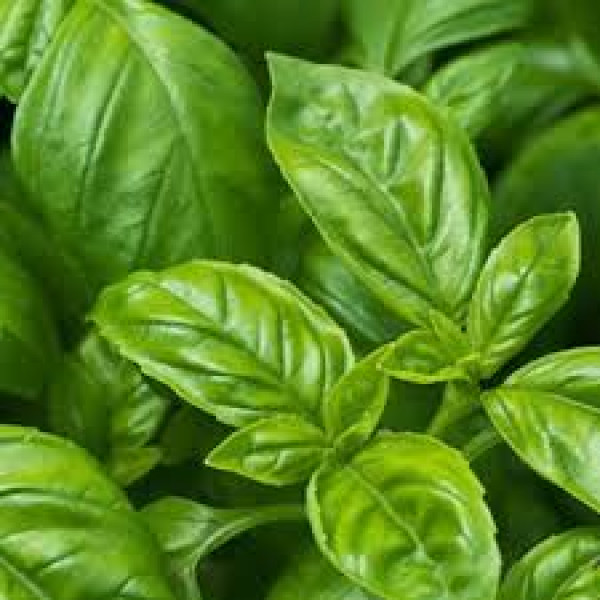- Your cart is empty
- Continue shopping

Introduction
Basil is a type of herb also known as Ocimum basilicum from the family Lamiaceae (mint). It grows in tropical regions as it needs water and warm weather to survive. You must know basil as a sweet-scented herb, this is because of the attractive aroma of essential oil.
Basil has ovate green leaves but is also available in a large variety of shapes and sizes. Its flowers are white, small, and grow from the center of the stem. Basil leaves are used in cooking and garnishing food. It is also popularly used as an herb in Ayurveda and Chinese ancient medicine.
Cultivation
Basils are grown in warm areas. Typically in Africa and South Asian regions. However, you can grow in colder regions like America or New Zealand if appropriate conditions are given. If you cultivate basil seeds in well-drained soil and place it directly to the sun, they will flourish into a healthy plant.
If you want to make your basil plant bushy, then don’t forget to pluck the buds off. As flowers prohibit the further growth of plants. Once, the flower grows fully its stems stop the production of essential oil and became dry. So, don’t forget to pluck out the flower stem off the plant.
Basil for culinary
Basil leaves are used in many food cousins around the world. You can see it as garnishing on the soups and herbal tea. It is the main ingredient of pesto an Italian sauce with olive oil.
Cooking destroys much needed fresh aroma of ingredients of food. Because basil leaves have a sweet scent, it is added to give flavor to the dish.
Basil as an insect repellent
It is also used as a mosquito repellent. Planting basil plants close to tomatoes results in better cultivation. As basil leaves protect tomatoes from insects and mosquitoes. It is because of its strong smell of peppermint oil.
Because of its anti-inflammatory and anti-bacterial properties. It has also herbal properties that are used to treat diseases. By planting basil seeds in your kitchen garden you can incorporate its benefits into your life.
Benefits of planting basil seeds
Basil leaves are not just used in cooking and have several health benefits. It has Vitamin A which helps to fight infection and diseases. It is also known for improving eyesight because of retinol present in it.
Vitamin C is an antioxidant that removes the free radicals out of the body. Free radicals are impurities and disease-causing infections that can be consumed through spoiled food, cold, cough, etc.
Basil leaves are also rich in minerals like iron that are needed for RBC’s (Red blood cells) production. Along with iron, it’s also rich in calcium, magnesium, phosphorus, sodium that plays an important part in body metabolism.
Conclusion
Basil leaves give off a sweet aromatic aroma that attracts many people to this herb. You can also attract people’s attention by planting basil seeds in your kitchen garden. Basil leaves are used for cooking purposes and have many herbal properties that benefit our health.
